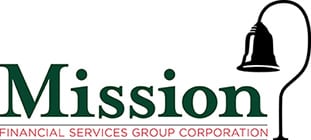After a very long year, the 2021 tax season is upon us. As an owner/operator, properly filing your tax return is crucial to the success of your operation. Navigating the increasingly complex tax code can be arduous, though. Multiple deadlines, numerous deductions, and various available exemptions and credits… filing your taxes can feel nigh on impossible. Those in the industry, however, know preparation is key. Plan ahead to ensure you have all the necessary documentation you need to properly file your taxes by the expected deadlines.
Here’s how owner/operators can prepare for the 2021 tax season.
Which Tax Forms Do Owner/Operators Need?
Let’s begin by answering the most basic question: Which tax forms am I expected to file? This depends entirely on your specific employment status—are you an employee of a trucking company, an independent contractor, or an owner/operator?
If you are employed as a driver for a carrier company or similar, you should receive a standard W-2 form for filing your taxes. The W-2 details the amount of wages you were paid during the previous fiscal year of employment. This form is the most straightforward filing procedure since there are no job-related expenses.
If you are an independent contractor or owner/operator, however, you will receive two tax filing forms: a 1099-MISC and a 1099-NEC. What’s the difference between the two? The 1099-MISC is an information return form (similar to a W-2) used to report payments made from a business to an independent contractor. Any independent driver who makes more than $600 from one particular source will be expected to complete a 1099-MISC from that source. The 1099-NEC, on the other hand, is used for independent contractors to report payments received from businesses for work performed. Independent contractors and owner/operators are required to complete and file both the 1099-MISC and 1099-NEC forms with the IRS.
When are the Filing Deadlines?
Don’t get slapped with a hefty penalty by missing the appropriate filing deadlines. The IRS penalizes workers for multiple reasons, including failure to file taxes and failure to pay taxes. Penalties include steep fines, seizure of property, and even jail time. Protect yourself by knowing the important filing and extension dates.
- February 12: The IRS begins accepting and processing individual tax returns.
- April 15: The date for employees to file their returns or request a deadline extension.
- April 15: Any unpaid taxes must be paid in full to avoid owing interest and penalties.
- October 15: Final date to file for those who requested a deadline extension.
Notice that April 15 is an especially important date as it is the deadline to file your returns, request an extension on filing, or pay any unpaid taxes to the IRS.
What’s the Recovery Rebate Credit?
This year, many working individuals will have the ability to receive a tax credit if they did not receive a stimulus check. If you received the maximum amount of payment from both federal stimulus checks, then there is no impact on your taxes and you do not need to report the stimulus payment as income. If you are one of the many owner/operators who did not receive the full stimulus payment amount from one or both stimulus packages due to your level of income, you may be eligible for the Recovery Rebate Credit. The Recovery Rebate Credit is designed to either increase tax refund amounts or decrease the amount of taxes owed for workers who did not receive the full economic relief payments from the federal government.
To be eligible for the Recovery Rebate, you must be a U.S. citizen or U.S. resident alien, cannot be claimed as a dependent for tax year 2020, and you must have a Social Security number valid for employment. To determine whether or not you are eligible for the Recover Rebate, fill out the Recovery Rebate Credit Worksheet in the Instructions for Form 1040 and Form 1040-SR.
Filing your taxes can be intimidating, as the United States tax code becomes increasingly complicated each year. Rest assured, you don’t have to go at it alone. If you are concerned with your ability to file your taxes correctly and on-time, hire a professional tax preparer to help guide you step-by-step through the filing process. Protect yourself and avoid making common mistakes by filing the correct forms by the appropriate deadline.



